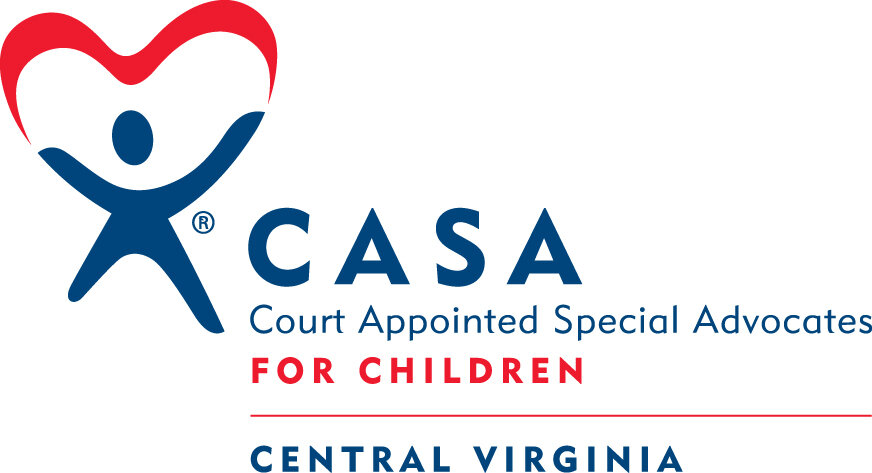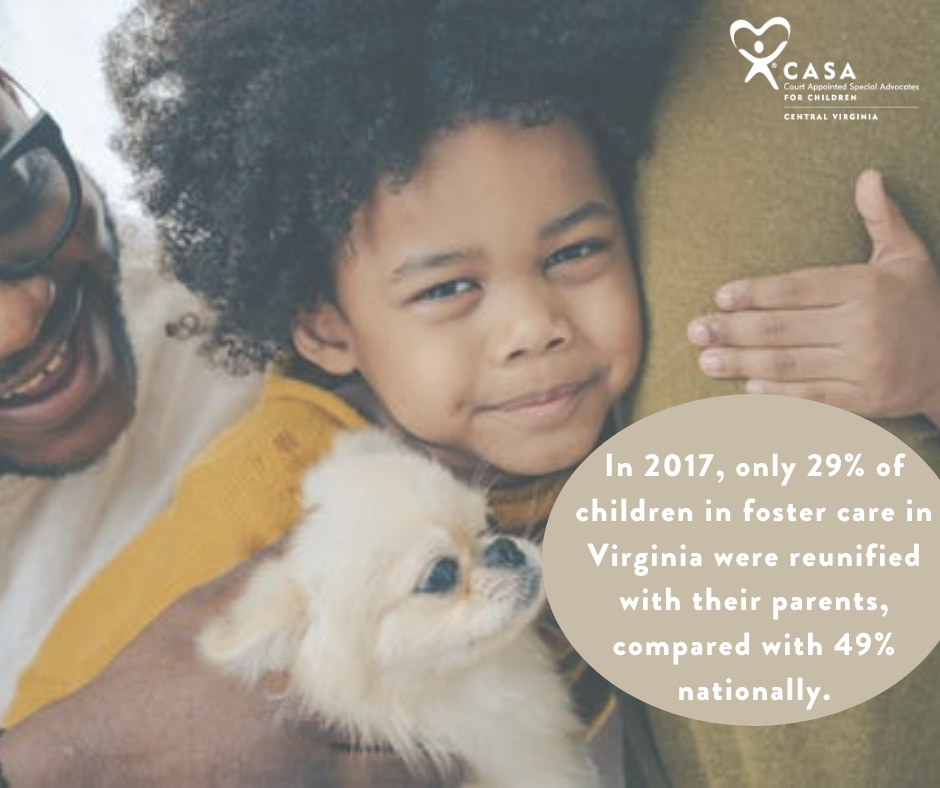Far From Home: A Photo Essay on Foster Care in VA
In January 2019, the Joint Legislative Audit and Review Commission (JLARC) delivered its report to the Virginia legislature regarding the state of foster care in Virginia. There were many needs identified to increase protections and positive outcomes for children in our system. A key consistent factor was the great need for more family placements for children in Virginia: more placement options with their own families of origin, and greater need for temporary foster families so children do not have to be placed in institutions while their families heal and prepare to welcome them home. All figures below are drawn from the body of the full JLARC report, available here.
Meet the Children
Virginia Must Do Better:
Inadequate family search and engagement: The JLARC report concluded that more efforts are needed to connect with biological parents during cases where a goal of Return Home is being worked. Additionally, the mandated search for relatives by DSS is often inadequate, with under-use of family-finding and engagement tools that policy already requires. It’s worth noting that more robust family search and engagement, which would hopefully lead to increases in family members filing for custody or stepping forward to become foster parents, could help alleviate the shortage of foster families, as well as the overuse of congregate care settings.
CASAs can play a key role in helping identify potential relative placement options, facilitate contact, and advocate for needed services to ensure a family home can be a safe, permanent placement for a child.
A shortage of qualified foster families is a key driving factor to an overuse of congregate care settings (such as group homes or residential treatment facilities). Many children in foster care with complex behaviors and diagnoses may have specialized needs that then limit those homes’ availability to other children. Virginia State DSS does not assist its localities with recruiting for foster families, and localities may not have the time or funding to dedicate specifically towards this if their workers are burdened with high caseloads.
Older youth are disproportionately placed in non-family settings due to lack of homes willing to take in teens and their specific challenges. If teens are never even placed with a foster family, it is unlikely they will then have a pathway towards an adoptive home. However, because older youth must consent to being adopted, which many do not want to do, the report notes that the low rates of reunification with family likely contributes the most towards the high rates of teens aging out of care with no permanent family structure in Virginia.
CASA Advocates Can Help:
CASA Advocates can help champion families to persist in the long journey necessary to get a child home, like in the Mattox’s story, below. Plus, CASA volunteers can assist in locating relatives who could be appropriate placement options, or help advocate for services families might need to be a permanent, safe option.
The Call to Action:
In short—there is work to do, but key opportunities that offer great potential for high impact!
**First, thank state legislators who worked hard this session to pass bills tackling many of the above issues. Consider sending a handwritten card, or even a Tweet or Facebook message thanking Senator Monty Mason and Delegate Emily Brewer, who created the first-ever Foster Care Caucus to discuss these issues on an ongoing basis, and who are speaking out about the need to create supports kinship families. Delegate Jennifer Carroll Foy, Senator Bryce Reeves, Senator Jennifer McClellan, and Delegate Chris Peace all introduced or backed legislation supporting foster youth this session. Delegate Scott Garrett, a representative for our area, was key to reconciling the budget to protect provisions that support foster youth.
**Consider becoming a CASA volunteer. CASA Advocates can help champion families to persist in the long journey necessary to get a child home. Plus, CASA volunteers can assist in locating relatives who could be appropriate placement options, or help advocate for services families might need to be a permanent, safe option.
**Consider stepping forward to become a foster family who is committed to helping children return home, and/or adopt a child who cannot return home. Reach out to your local DSS to find out the requirements in your area.
**For ways you can help support or become a kinship or foster family—visit the Virginia Fosters website. Truly, everyone has a supporting role they can play! Encourage your faith community to get involved in supporting both foster AND kinship families. Often kinship families have less connections to formal support networks that could assist with sudden needs like cribs, diapers, transport assistance, a meal train, etc.
**For ways to connect and access resources, visit NewFound Families Virginia, who offer support to all kinship, foster and adoptive families in Virginia.









